How will you go about finding that thing the nature of which is totally unknown to you?
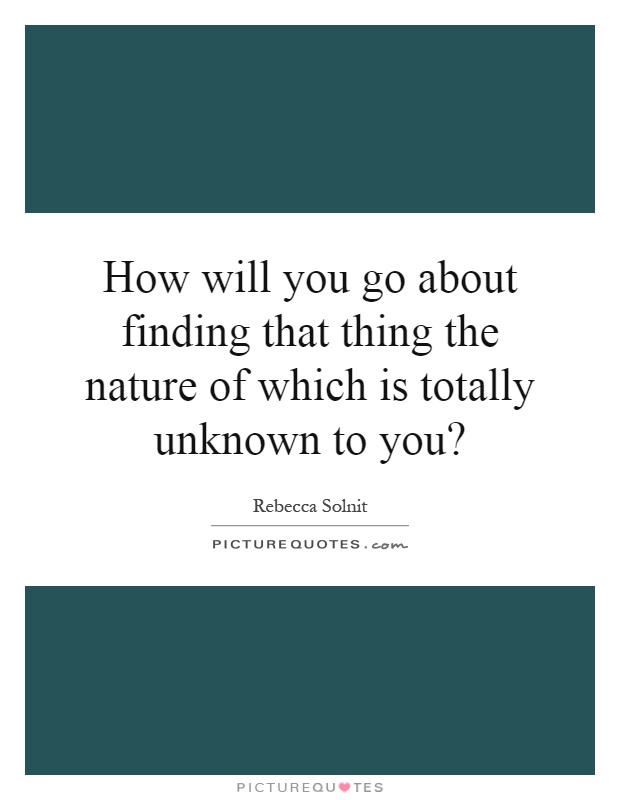
How will you go about finding that thing the nature of which is totally unknown to you?
Rebecca Solnit, a renowned writer and activist, often explores themes of uncertainty, exploration, and the unknown in her work. In her essay "A Field Guide to Getting Lost," Solnit delves into the idea of embracing the unknown and finding beauty in the unfamiliar. One of the central questions she poses is: "How will you go about finding that thing the nature of which is totally unknown to you?"To begin with, Solnit suggests that the key to discovering the unknown is to embrace a sense of curiosity and openness. She argues that we must be willing to step outside of our comfort zones and explore new territories, both physically and mentally. This may involve taking risks, venturing into unfamiliar places, or engaging with ideas that challenge our preconceived notions. By approaching the unknown with a sense of wonder and curiosity, we can begin to unravel its mysteries and uncover its hidden truths.
Furthermore, Solnit emphasizes the importance of patience and persistence in the search for the unknown. She acknowledges that the process of discovery can be slow and arduous, requiring us to navigate through uncertainty and ambiguity. However, she believes that it is through this process of exploration and experimentation that we can truly expand our horizons and deepen our understanding of the world around us.
In addition, Solnit encourages us to embrace the beauty of the unknown and to find joy in the journey of discovery. She argues that the unknown holds a sense of mystery and wonder that can enrich our lives and inspire us to see the world in new and unexpected ways. By approaching the unknown with a sense of awe and reverence, we can cultivate a deeper appreciation for the complexities and intricacies of the world.
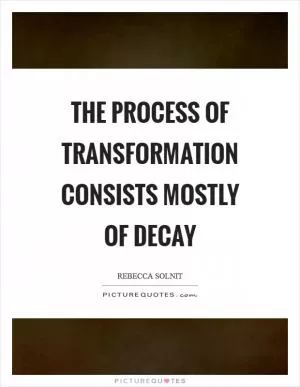
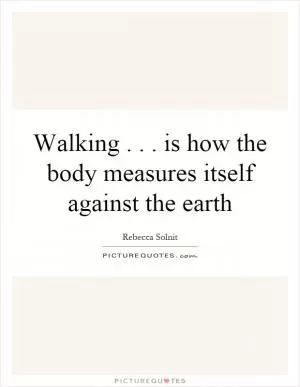
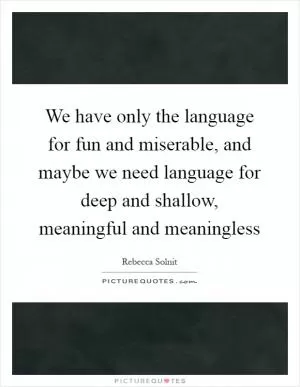
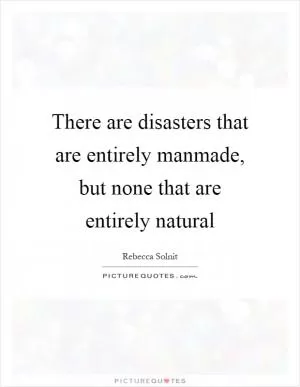
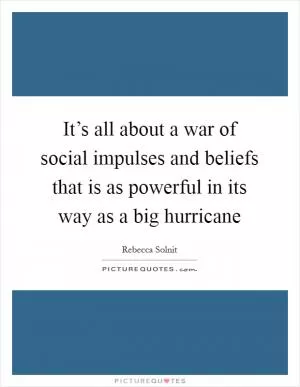
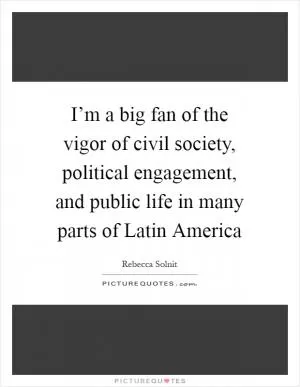



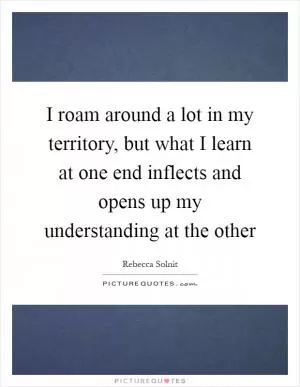
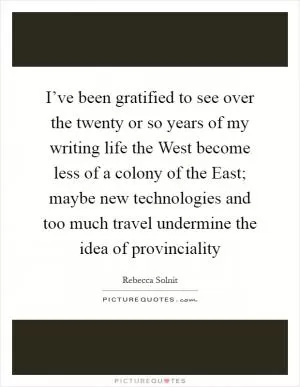
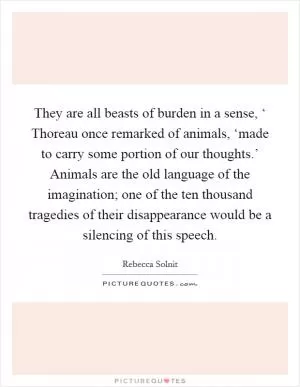
 Friendship Quotes
Friendship Quotes Love Quotes
Love Quotes Life Quotes
Life Quotes Funny Quotes
Funny Quotes Motivational Quotes
Motivational Quotes Inspirational Quotes
Inspirational Quotes